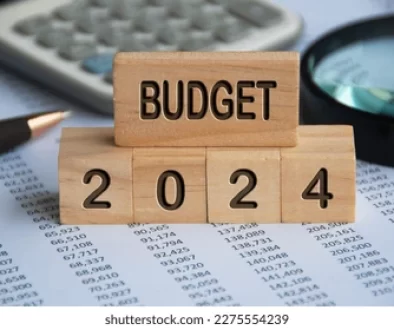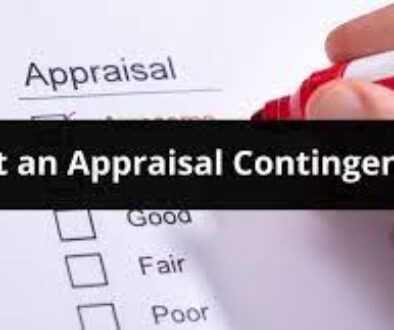First Time Homebuyer
FIRST TIME HOME BUYER
First Time Home Buyer
Being a first-time homebuyer is exciting! But we know it can also feel overwhelming. Even though you may be eager to purchase, we want to help make sure that you don’t end up hurting your financial goals.
Home Buying is worth doing this the right way and that means buying a home that you love and that doesn’t hurt your future money goals. Check out our 10 tips for first-time homebuyers to tackle the home-buying process.
1. Build an Emergency Fund
We hope this doesn’t come as a surprise, but owning a home is expensive! It’s much more expensive than renting, even if your monthly house payment will be similar or cheaper than your current rent amount. When you own a home, you’re responsible for all the maintenance and upkeep costs – those can add up fast. Before buying your first home, make you have an emergency fund of three to six months of expenses in place.
If you have a big emergency fund available, you’ll have the cash to pay for large expenses that come your way after you move into the home.
2. Determine How Much House You Can Afford
Before you get emotionally attached to a house, check your monthly budget to determine how much house you can afford. You need to leave room in your budget for other things, so make sure your monthly housing costs (including HOA fees, taxes, insurance, etc.) are going to be no more than 25% of your monthly take-home pay.
Don’t forget that property taxes and homeowner’s insurance will affect your monthly payment too. You’ll also need to factor those numbers in before settling on a maximum home price.
3. Save a Down Payment
If saving up to pay cash for the total price of a house isn’t reasonable for your family’s timeline, we recommend at least saving for a down payment of 20% or more. Then you won’t have to pay for private mortgage insurance (PMI), which protects the mortgage company in case you can’t make your payments and end up in foreclosure. PMI usually costs 1% of the total loan amount, and you’ll be charged that 1% every year.
4. Save for Closing Costs
Along with your down payment, you’ll also need to pay for closing costs. If you’re a first-time homebuyer, you may be wondering how much it costs to close on a house. On average, closing costs are about 3–4% of the purchase price of your home. Your lender will give you a specific number so you know exactly what to bring on closing day. These fees pay for important steps in the home-buying process, including:
- Appraisal
- Home inspection
- Credit report
- Attorney
- Homeowner’s insurance
5. Get Preapproved for a Loan
Once you’re confident you have enough cash saved to pay for closing costs and 20% of your home, you’re ready to take the next steps in the homebuying process: pre approval.
Pre Approval shows sellers that you’re a serious buyer, which is a great way for first-time homebuyers to get ahead in a competitive market! To get pre-approved, your lender will verify your financial information (proof of income, taxes, etc.) and submit your loan for preliminary underwriting.
6. Find a Home for Sale in Your Price Range
According to recent data reported by the National Association of Realtors (NAR), most buyers either found the home they purchased online (50%) or through a preferred real estate agent (28%).
Real estate agents provide valuable market expertise and can help you find great deals on homes as soon as (or before) they’re listed. Loan officers and real estate agents go hand in hand and we would be happy to put you in contact with a great referral.
7. Research Neighbourhoods for Best Fit
After you’ve found some homes for sale in your price range, be careful not to make a decision based on the property alone. According to a NAR survey, home buyers are more willing to compromise on a home’s consistency (23%) and size (19%) than on the quality of its neighbourhood (7%) and a school (2%). Make sure you factor neighbourhood quality and location into your decision.
Ask your real estate agent for information on crime rates and the quality of schools around your prospective neighbourhoods. Calculate your new commute times to see if they seem manageable. Visit the neighbourhood at different times and days to check for traffic conditions and noise levels and to see if people are comfortable being outdoors. Only choose a neighbourhood that you and your family feel good about.
8. Attend Open Houses and Think Long Term
Once you’ve narrowed down the neighbourhoods, attend a few open houses. Looking at homes that are for sale—even if they’re not a perfect fit for you—is a great way to learn more about the area. When you do eventually find a house you love, you’ll know how your place compares to better or worse homes in that neighbourhood.
9. Make a Competitive Offer (That’s Within Your Budget!)
Let’s say you found the home you want and can afford. Since you’re already pre approved for a loan, you’re ready to make an offer. If you’re a first-time homebuyer, it may be hard to know how much you should offer. That’s when you can rely on the expertise of your real estate agent.
Ask your agent to help you make sure your offer is competitive, but also within your budget and the home’s value. Be careful not to make an impulsive offer that’s higher than you can afford just to knock out the competition. A personalised letter might help your offer stand out among multiple bids in a hot market.
10. Prepare for Closing
Once a seller accepts your offer, the closing process will begin. Keep things running smoothly by knowing what to expect when closing on a house. The average closing process takes 43 days, which gives you plenty of time to tackle closing items. A real estate agent will schedule the remaining steps from the home inspection to the final walkthrough, and they’ll keep you informed about any roadblocks.
As you prepare for closing, make sure you read every document and ask your real estate agent to explain anything you don’t understand—especially before you sign the official contract for the home transaction. It’ll be your signature on the documents, so you’ll be the one responsible for anything you sign.
Ready to Get Started?
Your first home is a big purchase—maybe even the biggest one you’ll have ever made up to this point in your life and we will be more than happy to help you navigate the process




